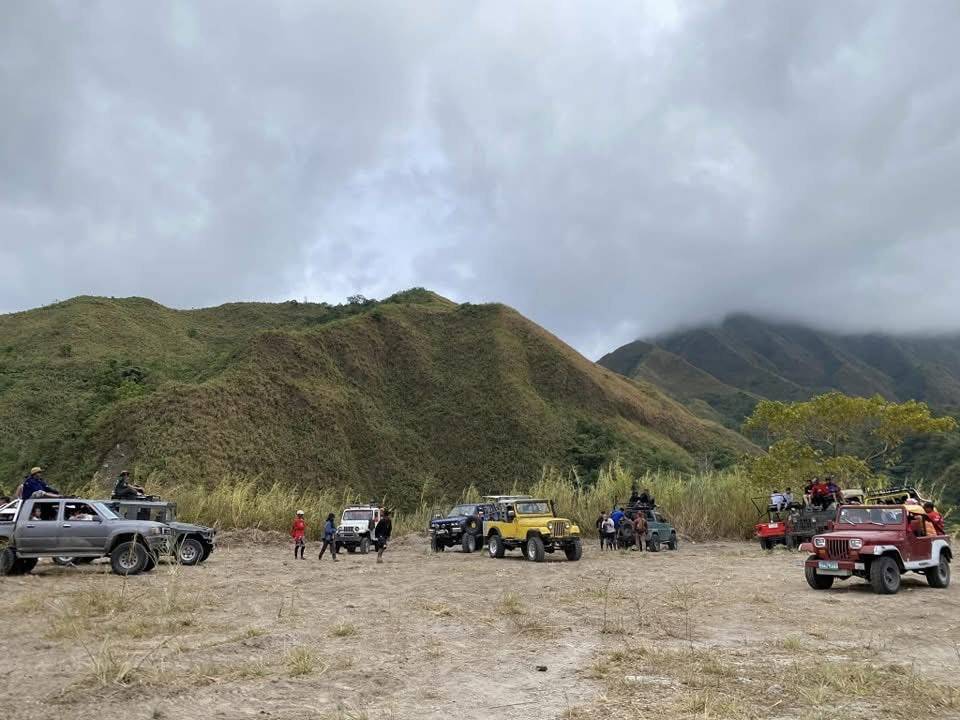Aeta communities in Zambales oppose reopening of Mt. Pinatubo trail

BOTOLAN, ZAMBALES—Less than two weeks after the Department of Tourism (DOT) suspended all tourism-related activities and projects at Mt. Pinatubo, Aeta communities in this province expressed serious concern over the planned reopening of the Mt. Pinatubo trail to tourists this weekend.
According to Aeta leader Chito Balintay, they learned about the reopening on Thursday, and immediately submitted a letter of objection to Richard Daenos, regional director of the DOT in Central Luzon.
In their letter on Friday, Balintay, along with fellow Aeta leaders and elders, urged the DOT to call on the Botolan local government unit (LGU) to acknowledge their concerns, hold sincere consultations, and work toward a just resolution.
“We want to make it clear: We do not recognize any tour-related activities being conducted at Mt. Pinatubo without our genuine consent and participation. While we do not wish for conflict, we cannot allow the continued exploitation of our land and marginalization of our people to go unchallenged,” the letter read.
They emphasized that long-standing and unresolved issues involving the Botolan LGU must be addressed before any tourism activity on the mountain resumes.
The 1991 eruption of Mt. Pinatubo created a crater lake that has since become a popular tourist destination. The volcano sits within a 15,998-hectare area officially covered by a certificate of ancestral domain title (CADT), which was granted to the Aeta communities in 2009.
Rightful owners
The CADT encompasses the villages of Burgos, Villar, Moraza, and Belbel in Botolan, along with portions of the towns of Cabangan, San Felipe, and San Marcelino, all in Zambales. About 2,000 Aetas reside within the Botolan portion of the ancestral domain.
Balintay recalled that in 2015, the community, through the Pinatubo Task Force and supported by the National Commission on Indigenous Peoples (NCIP) and tribal elders, began coordinating tourism activities in good faith.
Initially, Balintay said, their community managed the tours. But in 2016, the Botolan LGU took control of operations, allegedly “in collusion with the NCIP and military.”
They said a “flawed” free, prior and informed consent process resulted in a memorandum of agreement (MOA) that did not reflect what had been agreed upon. Community representatives were then replaced by people many of whom did not live within the ancestral domain.
“We only agreed about three years [of coverage in the MOA] in our meetings but they wrote 25 years. We did not sign but the NCIP continued and village officials signed the agreement,” said Balintay.
Revenue concerns
Despite the tourism boom in the area since then, the Aeta communities claim they did not get any benefit or even a basic accounting of the revenue generated.
“This is not only unjust but a direct violation of our rights under the Indigenous Peoples Rights Act,” said Balintay.
On April 18, members of the Aeta community in Tarlac blocked access to the Mt. Pinatubo crater to protest the lack of compensation and failure to recognize their ancestral domain. Some protesters were detained by police but were released on the same day.
The DOT announced on May 4 the suspension of all tourism activities and projects on the mountain, a move that aligned with Executive Order No. 5 issued by the Botolan LGU.

















